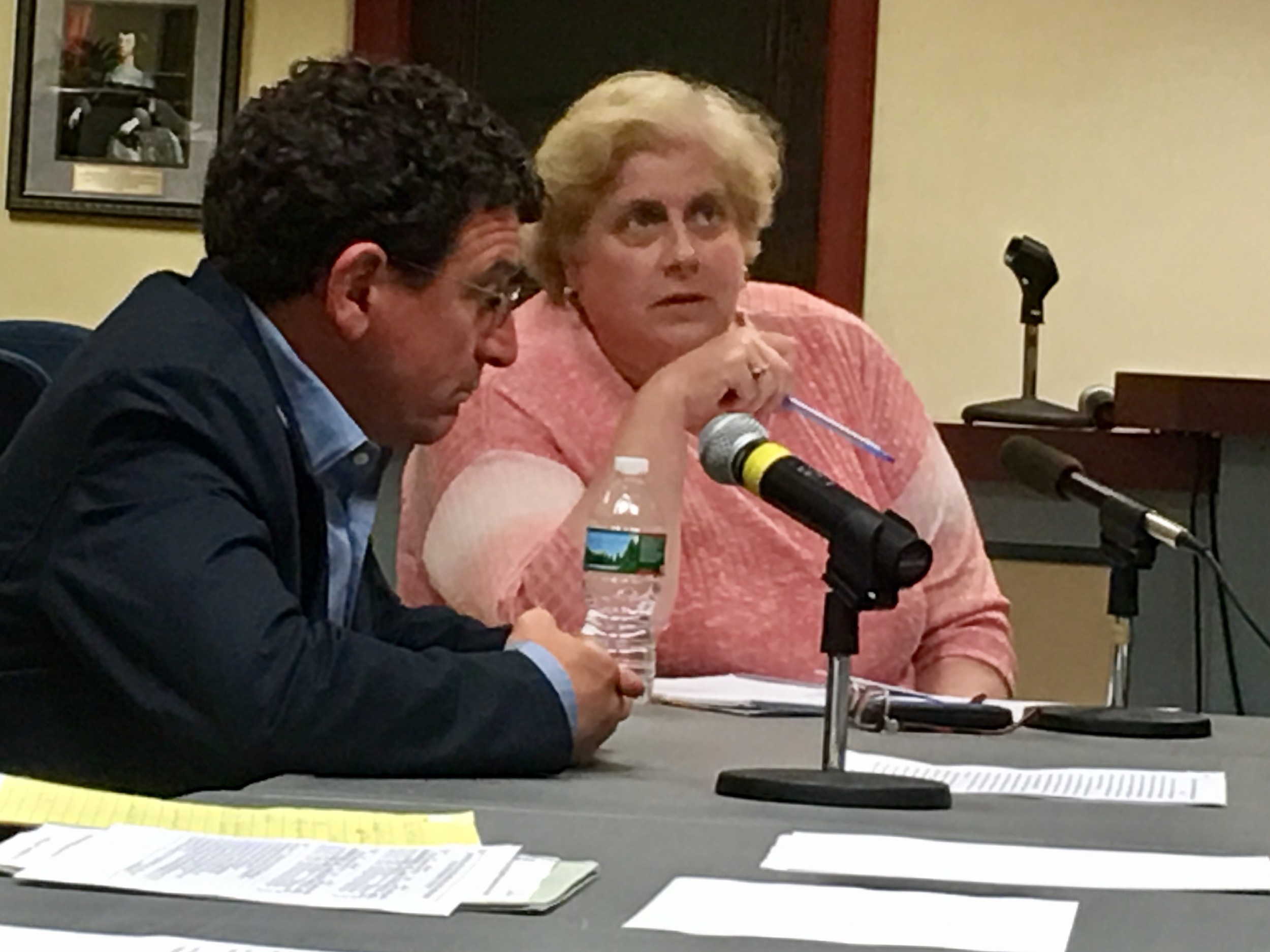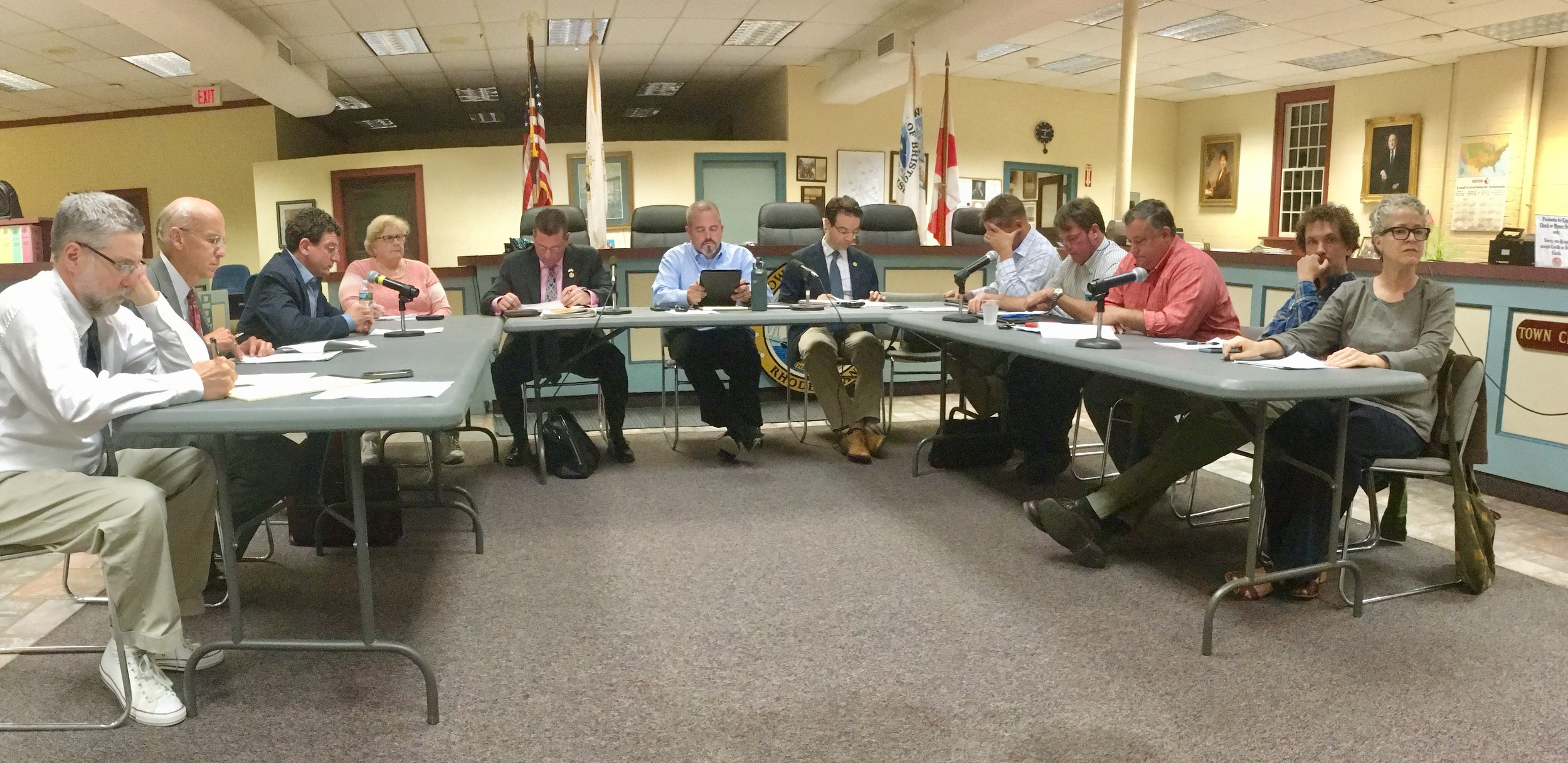Bristol and Warren leaders talk about their fractured relationship
Bristol and Warren need to do something to make their relationship and fractured school district’s finances whole, town council members from both towns agree. Exactly what they should do, …
This item is available in full to subscribers.
Please log in to continue |
Register to post eventsIf you'd like to post an event to our calendar, you can create a free account by clicking here. Note that free accounts do not have access to our subscriber-only content. |
Day pass subscribers
Are you a day pass subscriber who needs to log in? Click here to continue.
Bristol and Warren leaders talk about their fractured relationship
Bristol and Warren need to do something to make their relationship and fractured school district’s finances whole, town council members from both towns agree. Exactly what they should do, though, is unclear.
Council members met at Bristol Town Hall Tuesday night at the request of Warren councilors, who had asked that the two councils get together to discuss the possibility of establishing a taxing district to fund education here.
The request comes on the heels of the state Supreme Court’s recent dismissal of an appeal by Bristol and the school department over a lower court decision that sided with Warren on how state education aid was being dispersed here.
The court’s ruling, that state aid had indeed been dispersed incorrectly, with Bristol getting too much and Warren too little for several years, will cost Bristol approximately $3 million per year more than it had been paying prior to the ruling.
Even so, Warren officials continue to express concern that because of the different financial fortunes, tax bases and property values in each town, Warren will continue to pay more per pupil than Bristol does, even with their victory in court.
But establishing such a district, Warren officials have said, would “normalize” the two towns as all taxable properties within the unified towns would be assessed together, using the same criteria. Then, as is the case with municipal taxing, the resulting tax base — the cumulative value of all properties in the district — would be used to calculate a tax rate suitable to raise the amount of money the school district requires. Warren officials believe the taxing district would eliminate the disparity in per pupil costs caused by the differences in wealth from town to town.
Joanne DeVoe, who served as an at-large citizen member of the Joint Finance Committee, helped establish such a district in Baltimore, Md., before moving to Warren 17 years ago. On Tuesday, she presented a multi-page study that explores the financial impacts of establishing a tax district here.
Though council members did not go over it in any great detail, several from Bristol did note that the difference in education bills from town to town under a taxing district would not be substantially different than the current state formula used by the regional school district — a few cents either way in each town’s tax rate.
Bristol Town Council member Andy Tyska, the chairman of the Joint Finance Committee, asked Ms. DeVoe what the numbers mean:
“Would you agree that the tax district model is reinforcing, and possibly nearly replicating, the current funding formula?”
“I think the Supreme Court decision creates a situation where the tax rates are similar to what we would have if there was one unified district,” she replied.
“So, the next question, maybe not directed at you, is: What’s the problem? What are we trying to fix?”
As for the benefit to establishing a taxing authority even though it might change little financially, Warren Town Council members said there are other benefits besides financial equity:
“As it stands now, Bristol does have more skin in the game,” John Hanley said. “This would put each taxpayer with the same skin in the game. (In addition) it would put the responsibility for the budget on the people who actually set the budget. It’s the school committee that generally sets the budget; this would have them answer directly to voters not only for school policy, but for the school budget.”
“Why are we so afraid to give (the schools) the authority to raise their own revenue and spend it as they see fit?” added Warren councilor Chris Stanley. “To me that was the key all along: Take (the budget) out of our hands completely and make (the schools) responsible to the taxpayers. It just makes sense. Why should one town pay more (per pupil) than the other? If you create a community … all this infighting disappears.”
That might sound like an easy and sound solution, Bristol councilor Mary Parella replied. She acknowledged that she once had similar feelings on school financing, but has since changed her way of thinking. She said that putting the power over budgets in the hands of school committees is fraught with danger. Given the power to levy and collect taxes, she said, the school committee could one day end up with members concerned less with education than in the bottom line.
“Right now the school committee, their job is to be an advocate for the kids,” she said. “They come forward with what they think we need (and) it’s our job, looking at that request and balancing all the other needs, to approve a number. What happens (when given the authority to tax) is you get people on the school committee who represent just the taxpayers and not the kids.”
School Committee member Marjorie McBride said she also does not favor giving the responsibility over budgets to the school board, as that would lead to an increased burden.
“I still think that the onus of the tax comes out of your offices and the collection of the taxes comes out of your offices,” she said to councilors.
“I agree with Mary that there should be something in the middle, and I’m looking at that middle as Joint Finance.”
Councilors spent the rest of the 90-minute meeting hashing out the pros and cons of establishing a district, how that would be done, and of other possible changes in the school district’s structure. Those possibilities include adjusting enabling legislation to “tweak” the funding formula, establishing an independent task force to explore legal and financial options for the school district going forward, and possible deregionalization, an option discussed for months in Bristol and last brought up officially at last week’s Bristol Town Council meeting.
Though several Bristol councilors used the word throughout the meeting, it was not spoken by their counterparts in Warren and is not an idea favored by school committee chairman Paul Silva.
Even talk of studying dergionalization could have disastrous effects on the district’s image, he told councilors, leading to a drop in the number of qualified educators interested in working in the district. Even if the towns did decide to deregionalize, he suggested the resulting problems and issues caused by a dissolution would take “more than one or two years to fix, and I don’t think you want to do that to any of our children.”
In the end, council members agreed to take Ms. DeVoe’s financial analysis and bring it home for a more in-depth study. From there, Warren Town Council member Joseph DePasquale said, the two towns will likely talk about the issue again in the coming months. No date to meet again was set.











